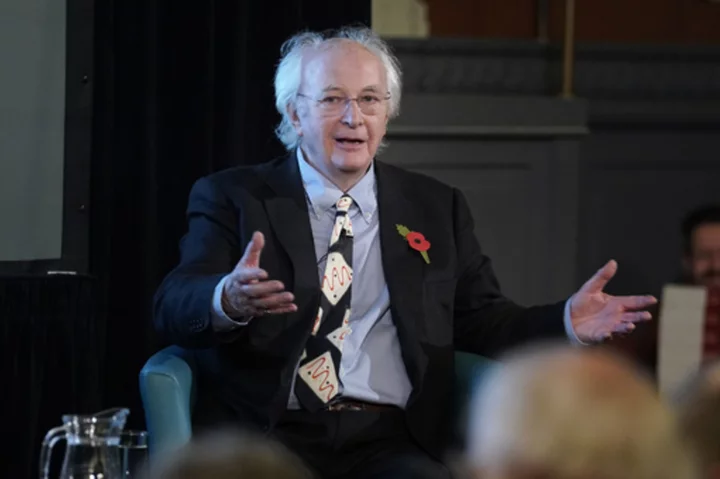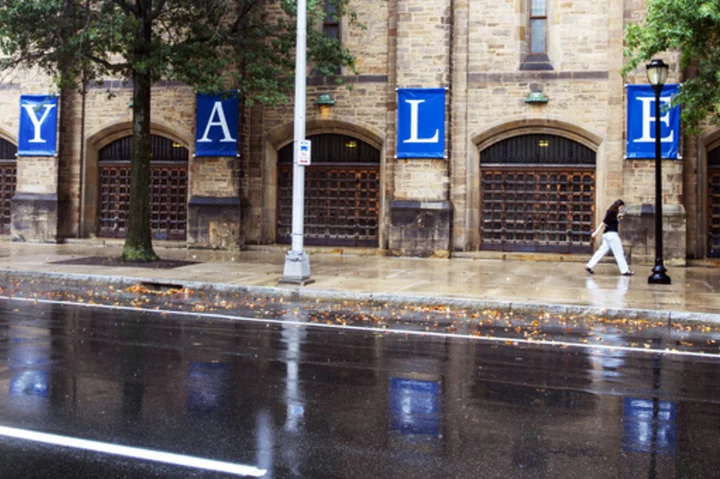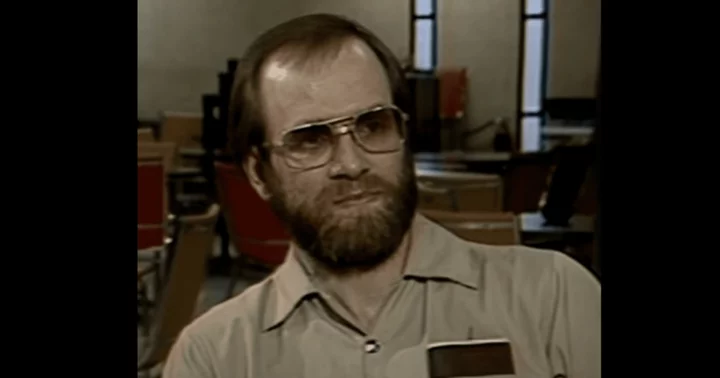OXFORD, England (AP) — Fans of Philip Pullman have been waiting almost five years for the final instalment in the author’s sextet of books about his intrepid heroine Lyra and her adventures in multiple worlds. They won’t have to wait too much longer.
Pullman says he has written 500 pages of a 540-page novel to conclude the “Book of Dust” trilogy, and it should be published next year -- though he still doesn’t know what it’s called.
“I haven’t got a title yet,” Pullman told The Associated Press in his home city of Oxford, where he was honored Thursday with the Bodley Medal. “Titles either come at once or they take ages and ages and ages. I haven’t found the right title yet — but I will.”
The medal, awarded by Oxford University’s 400-year-old Bodleian Libraries, honors contributions to literature, media or science. Its previous recipients include World Wide Web creator Tim Berners-Lee, physicist Stephen Hawking and novelists Hilary Mantel, Kazuo Ishiguro, Zadie Smith and Colm Tóibín.
Pullman, 77, was recognized for a body of work that includes the “Northern Lights” trilogy and its sequel, “The Book of Dust.” The saga is set in an alternative version of Oxford -- ancient colleges, misty quadrangles, enticing libraries -– that blends the retro, the futuristic and the fantastical. In Pullman’s most striking act of imagination, every human has an inseparable animal soul mate known as a daemon (pronounced demon).
The stories are rollicking adventures that take Lyra from childhood into young adulthood and tackle humanity’s biggest questions: What is the essence of life? Is there a God? What happens when we die? They are among the most successful fantasy series in history. Pullman’s publisher says the first trilogy has sold 17.5 million copies around the world. A BBC- and HBO-backed TV series that ran for three seasons starting in 2019 won even more fans.
Pullman says the next book will be his final foray into Lyra’s world -– though he also said that after the first trilogy, only to be tempted back.
“I can’t see myself coming back to it,” he said. “There are other things I want to do,” including a book about words and images and how they work together on the imagination.
Pullman is an atheist, and his unflattering depiction of organized religion in the novels, which feature an authoritarian church body called the Magisterium, has drawn criticism from some Christian groups. His books have been pulled from some Catholic school library shelves in Canada and the United States over the years.
Yet Pullman has fans among people of faith. Former Archbishop of Canterbury Rowan Williams, who once led the world’s 85 million Anglicans, acknowledged at the medal ceremony that “we’re not entirely of one mind on every subject.” But he praised Pullman’s “extraordinarily comprehensive, broad imagination.”
“I have a strong suspicion that the God Philip doesn’t believe in is the God I don’t believe in either,” Williams said.
Pullman says he doesn’t mind being banned -- it’s good for sales — but worries there is a growing censoriousness in modern culture that tells authors they should only “write about things that you know.”
“Where would any literature be, where would any drama be, if you could only write about things you know or the people you come from? It’s absolute nonsense,” he said. “Trust the imagination. And if the imagination gets it wrong, well so what? You don’t have read the book, just ignore it, it’ll disappear.”









